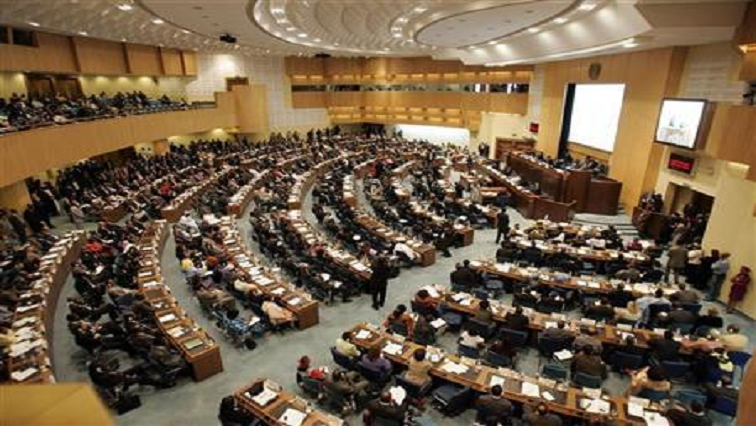The African Union‘s Anti-Corruption Board will be in South Africa on a working visit this week. The board will evaluate if South Africa is adhering to the AU Anti-Corruption Convention. It will also seek to establish if the country has put in place mechanisms to detect and fight corruption.
As a signatory to the Convention against Corruption – South Africa is required to pass legislation that promotes anti corruption and deals decisively with offenses.
The Board will visit the Country to engage with various stakeholders involved in anti- corruption work. It will also pay a courtesy call to President Ramaphosa and other government officials. In addition, the board will engage civil society organizations and the private sector on their mission.
The Board will submit a report detailing whether South Africa is making strides in fighting corruption and complying with the Convention.
The graphic below shows the AU’s mandate

Loading…
The cost of corruption in SA
Corruption is the overwhelming reason why South Africa’s economic growth rate has plummeted, the country slipped into recession and global rating agencies downgraded it to junk status.
Corruption undermines the delivery of public services, slows economic growth and stunts development. It diminishes public funds for public services such as health, education and fighting crime.
Slowdowns in economic growth, causes mine, factory and shop closures, and with it, mass job losses. For example, when South Africa falls into a recession, the country can lose more than 200 000 jobs as an immediate result thereof.
Losing a job causes family breakdown, a rise in mental illness and a rise in crime as people turn towards crime. Corruption causes many potential foreign investors to not come to South Africa; but it also causes many local entrepreneurs to reduce current, and shelve new investments – both of which slashes existing and potential new jobs.
A downgrade of a country to junk status, makes borrowing abroad more expensive. Investors either move their money out of a country or put new investments on ice. Many foreign institutional investors have a rule, that if a country is assigned junk status, they do not invest in such a country.
A mass flight of investors, more unemployed and more expensive debt servicing means that a country has less income. It has less to spend on essential public services, on job creation schemes and on building new or maintaining current infrastructure.
It means that a government has to reduce costs. It has to, for example, cut certain public services and welfare programmes.






